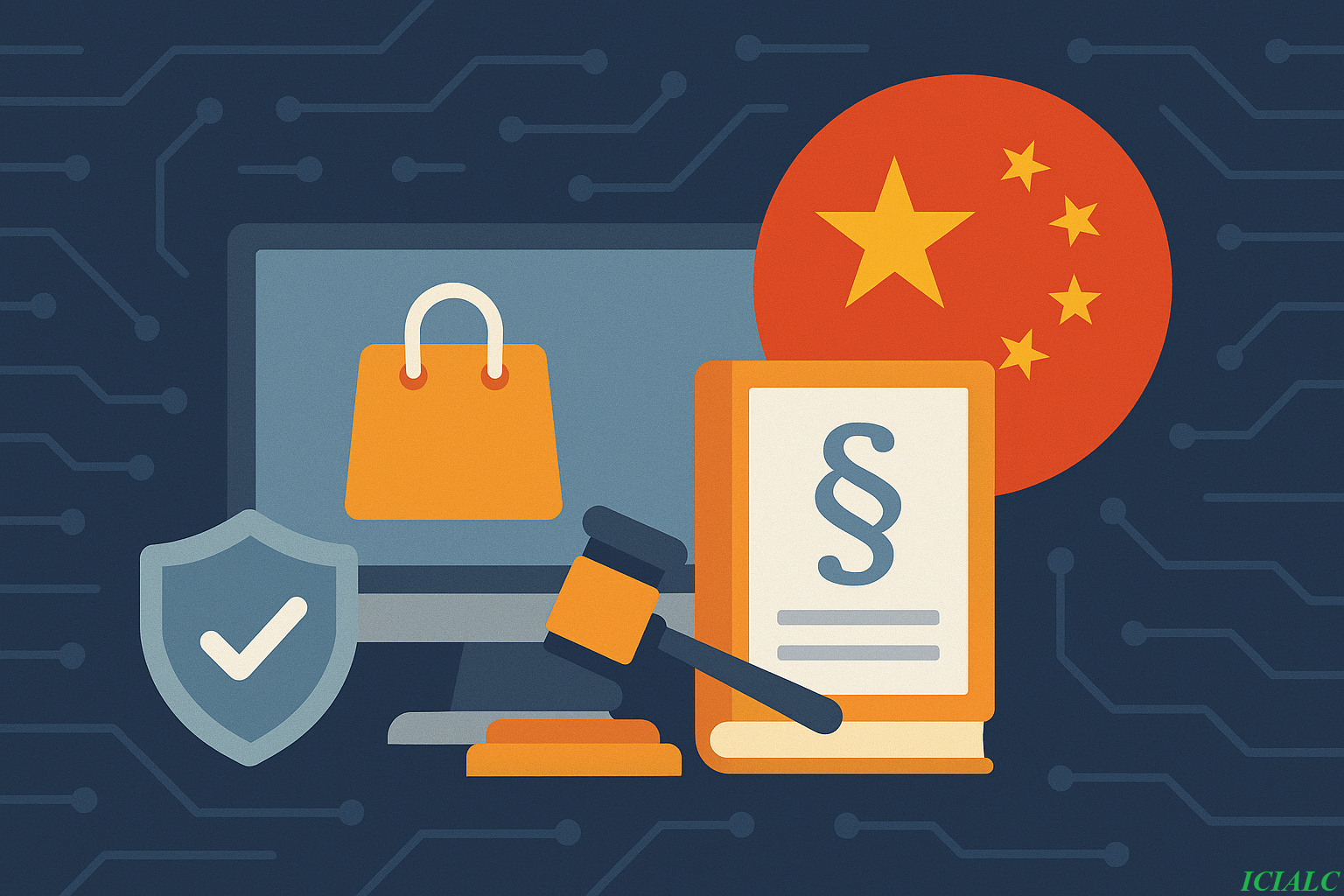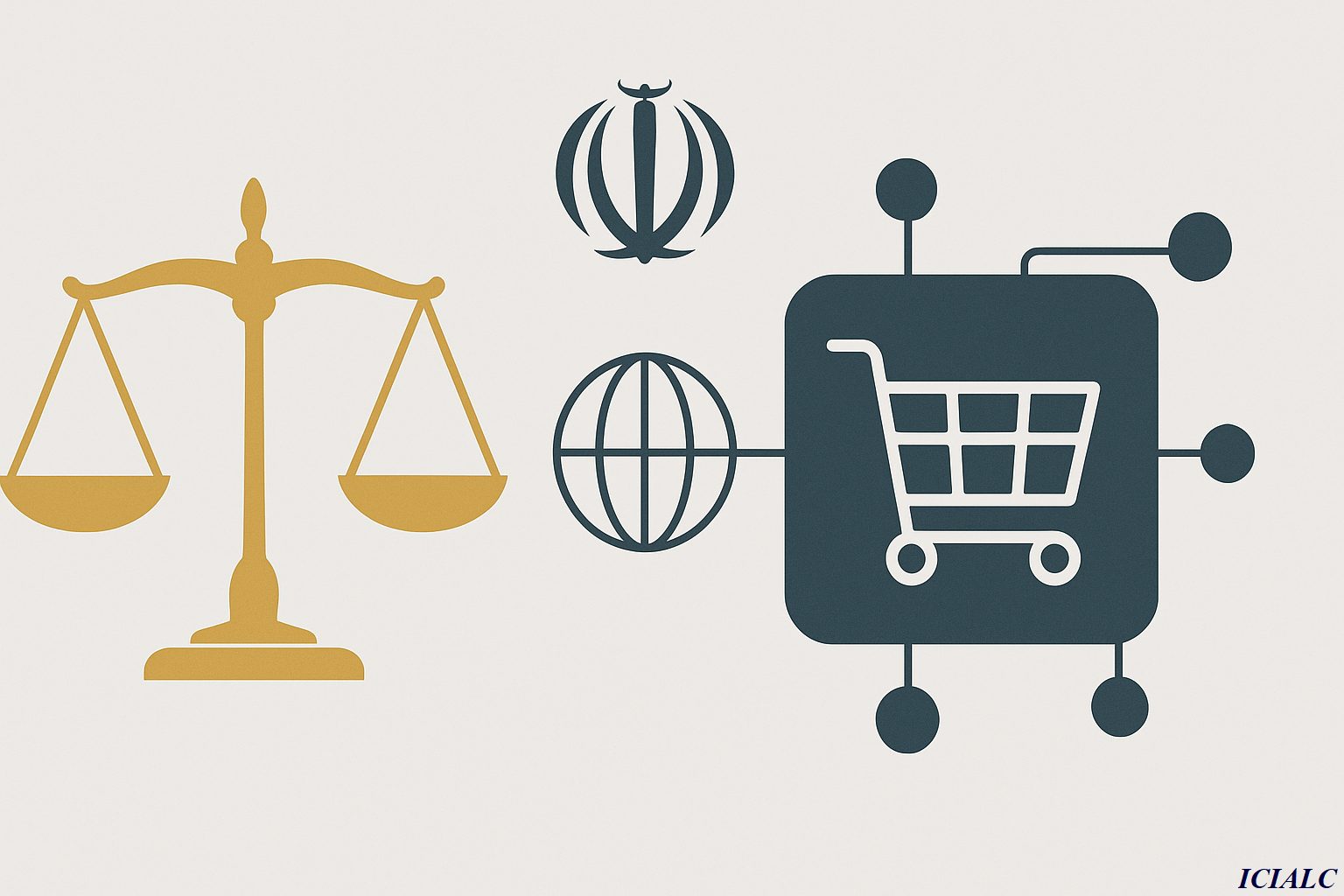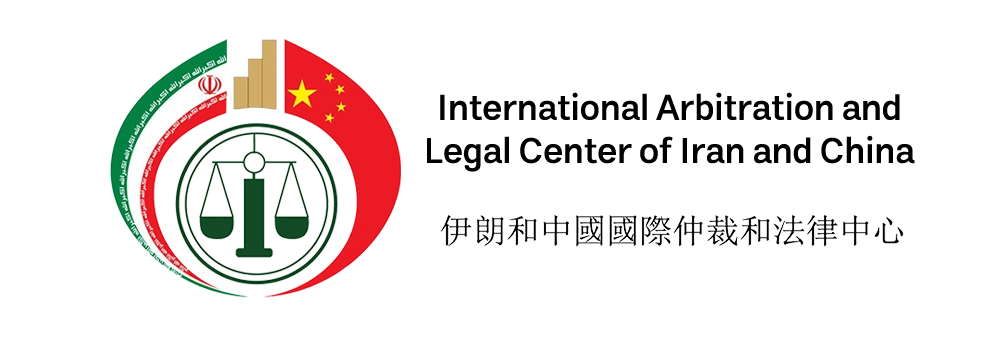In the digital era, e-commerce has become one of the most vital economic tools for growth and development among nations. China, with its advanced infrastructure, extensive technological experience, and a vast market, plays a leading role in global e-commerce. Conversely, Iran has rapidly developed its communication infrastructure and shows increasing adoption of digital services, positioning itself to become a significant regional player in the e-commerce sector. Considering the strategic relationship between Iran and China, a legal analysis of e-commerce and digital rights in bilateral interactions is both urgent and of strategic importance. This paper aims to examine legal frameworks, opportunities, challenges, and practical solutions for advancing digital trade between the two countries
Definition of Digital Law and E-Commerce
A precise understanding of foundational concepts such as digital rights and e-commerce is the first step in any legal analysis of modern economic interactions. These concepts form the core framework for assessing legal relationships among digital actors.
Digital rights is an emerging and dynamic branch of law that examines the legal dimensions of human interaction with new technologies. This domain includes issues such as data ownership, information security, privacy rights, platform liability, freedom of expression in cyberspace, and even digital rights of children. The significance of digital rights today is so pronounced that many countries are striving to draft digital charters for their citizens.
E-commerce is more than just commercial activity—it refers to a complex ecosystem of relationships, systems, and technologies that enable commercial transactions via digital tools such as the internet. Within this framework, electronic contracts, digital signatures, payment gateways, and delivery systems all play pivotal roles. Legally, e-commerce requires a clear and transparent structure to determine transaction validity, party responsibilities, and dispute resolution procedures.
Legal Framework for E-Commerce in China

Over the past two decades, China, recognizing the importance of the digital economy, has taken major steps to develop legal frameworks supporting e-commerce. Through the adoption of several specialized laws, China has aimed to create a secure, transparent, and competitive environment for stakeholders in this field.
E-Commerce Law of China (2019):
This is the first comprehensive legislation to regulate digital commerce in China. It sets strict requirements for online business registration, transaction transparency, platform liability, and consumer rights protection. It also includes regulations regarding misleading advertising, product returns, and data collection.
Personal Information Protection Law (PIPL):
Inspired by the EU’s GDPR, this is China’s primary law for protecting user data. Under PIPL, companies must obtain explicit user consent for data processing, clarify how data is used, and allow users to request data deletion.
Cybersecurity Law:
This law focuses on the technical and security aspects, emphasizing the development of infrastructure resilient to cyber threats, maintaining data confidentiality, and establishing operator responsibilities.
For Iranian companies operating in China, compliance with these three core laws—especially data protection—is essential. Adherence not only ensures legal credibility but also builds trust among Chinese users and regulatory bodies.
Legal Framework for E-Commerce in Iran

Iran, as one of the leading Middle Eastern countries in internet service development, has made efforts to regulate the digital trade space. However, significant legal challenges remain that must be addressed.
E-Commerce Law (2003):
This was Iran’s first formal attempt to recognize digital transactions within its legal system. It defines key concepts such as digital signatures, electronic documents, and the validity of digital contracts. Despite its age, this law still forms the basis for many digital transactions and disputes.
Consumer Rights in the Digital Space:
Although there is no dedicated law, general principles from the Consumer Protection Law—such as transparency, product quality assurance, and the right to withdraw from a purchase—have been extended to digital commerce.
Lack of a Comprehensive Data Protection Law:
One of Iran’s biggest legal gaps is the absence of a data protection law similar to PIPL or GDPR. This shortcoming is especially problematic in international cooperation with countries like China, where strict data regulations are in place.
Updating the e-commerce law, passing a data protection bill, and creating digital regulatory authorities are essential steps for advancing digital trade law in Iran.
Legal Interactions between Iran and China in the Digital Domain
With the expansion of economic and technological cooperation between Iran and China, the need for a clear and balanced legal foundation in digital commerce is more pressing than ever. Despite some general memorandums of understanding, a binding and structured legal framework between the two countries has yet to be fully established.
One major challenge in legal interactions is the gap in development levels between the two digital legal systems. China has a structured system with codified laws and active regulatory bodies, whereas Iran is still working toward comprehensive legislation. Other challenges include:
Lack of unified dispute resolution procedures: The absence of joint arbitration mechanisms increases legal risks for both sides.
Complexity in contract translation and interpretation: Especially in digital contracts involving complex legal terms, mistranslations can cause disputes.
Differences in consumer rights and data protection levels: Divergent views on privacy and data ownership affect commercial relations.
It is recommended that the two countries establish joint legal committees, sign specialized MOUs, and launch online arbitration platforms to reduce disputes and enhance economic confidence.
The Role of Emerging Technologies in Iran-China Trade
Technological innovations—especially in blockchain, cryptocurrencies, and fintech—are transforming the e-commerce landscape. Iran and China, each with their specific characteristics, are experiencing these changes in unique ways.
Blockchain and Smart Contracts:
China has made significant strides in applying blockchain for supply chain management, ownership registration, and smart contracts. In contrast, Iran remains in early stages due to infrastructural limitations and a lack of legal clarity.
Fintech and Digital Payments:
Tools such as Alipay and WeChat Pay have made China a global leader in digital payments. Iran, with platforms like Shaparak, is still not connected to global digital payment systems, and sanctions pose unique legal challenges.
Cryptocurrencies and the Digital Yuan:
China has officially developed the digital yuan, which is being tested in several regions. Iran is also exploring the use of cryptocurrencies to overcome international currency restrictions. Establishing legal frameworks for crypto transactions in both countries could facilitate bilateral cooperation.
Legal Recommendations for Iranian Companies
Given the legal complexities and differences between Iran’s and China’s legal systems, Iranian companies need practical, transparent, and law-based solutions to succeed in international digital trade.
Drafting precise electronic contracts:
Contracts must include explicit clauses regarding jurisdiction, applicable law, digital dispute resolution methods, and data protection responsibilities.
Appointing legal advisors familiar with Chinese law:
Working with specialized consultants and lawyers who understand Chinese digital law can reduce risk and enhance compliance.
Establishing local branches or representatives:
Setting up a local office in China or partnering with Chinese agents helps with trust-building and legal compliance.
Creating bilingual legal documents:
Legal documents and contracts must be accurately translated and reviewed by bilingual legal experts to prevent misinterpretation.
Continuous legal education and training:
Keeping up with legal developments in China especially in data protection, consumer rights, and electronic payment is vital.
Conclusion
The expansion of digital and economic cooperation between Iran and China provides valuable opportunities for both countries. However, realizing these opportunities requires precise legal planning and mutual understanding. By updating national laws, harmonizing digital trade regulations, and using international best practices, Iran can enhance its presence in the Chinese market. This requires serious attention from policymakers, legal scholars, and the private sector. In today’s competitive digital world, legal literacy is not a luxury it’s a necessity.
